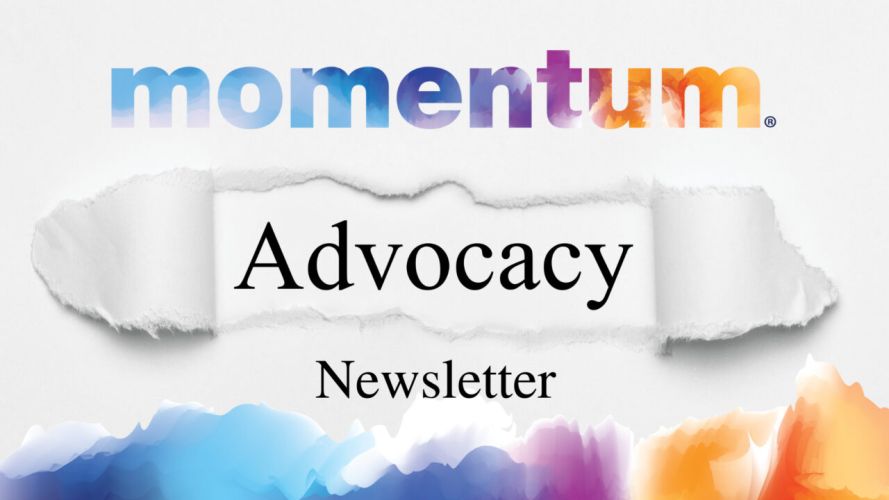

A Note from the CEO…
In a few short weeks disability advocates throughout the country will be observing the 25th Anniversary of the Olmstead v. L.C. Supreme Court decision. On June 22, 1999, the U.S. Supreme Court announced that states must ensure that people with disabilities receive services in the most integrated setting appropriate to their needs and be included in their community.
A critical resource in the community integration mandate is a sufficient number of quality disability service providers. In 2016, a rate study was undertaken, in part, because the historical disability rate structure in California did not result in funding levels for service providers that kept pace with system growth or supported an adequate supply of providers. The last step in implementation was scheduled to take effect July 1,2024.
However, Governor Newsom, as part of his FY2024-25 state budget, is proposing a one-year delay in final implementation of the rate study. The result is a one-time cut of $1 billion in disability service reimbursements. We are encouraged that the legislature recently rejected this delay in their budget counterproposal to the Governor. However, the final decision on the implementation date will be determined during June budget negotiations.
I urge you to visit Momentum’s advocacy center to urge Governor Newsom to restore this devastating cut. It takes only two minutes of your time but will have a significant impact on our efforts to rescind this misguided proposal. The most appropriate way to acknowledge the importance of the Olmstead decision is to fund a disability support system that enables all people with disabilities to live, work and play in their community.
Lori Anderson, President & CEO
Please click here to visit Momentum’s online advocacy platform to add your voice to this important campaign.

Momentum’s VoterVoice Advocacy Center
Advocacy Contacts
Governor Gavin Newsom
Phone: (916) 445-2841
Fax: (916) 558-3160
Internet Contact Form Access – Here
X Accounts:
@GavinNewsom
@CAgovernor
Facebook:
@GavinNewsom
Find Your Representatives
U.S. House of Representatives
U.S. Senate
California State Legislature
California News
Advocacy Needed to Restore $1 Billion in Developmental Disability Funding in FY2024-25 California State Budget
In 2021, the California State Legislature passed a historic model implementation plan, which addressed decades of underfunding to services for Californians with intellectual and developmental disabilities (IDD).
The Legislature took quick action again in 2022, accelerating the plan’s final phase to this year due to the critical state of the regional center system. A state budget proposal to undo that action now threatens to undermine progress of the plan and the future of disability services. That proposal cuts $613 million in state general funds, which reaches $1 billion in total cuts when the Federal Medicaid match is added, from the FY 2024-25 state budget.
Direct support professionals (DSPs) support Californians with IDD and their families every day. There are no disability services without DSPs. Wages for this essential work are paid through these state-funded service provider rates. Stagnant rates have resulted in DSP wages failing to match the increases in service sectors like fast food workers and retail staff.
DSP turnover is estimated to be well over 40%. High turnover and staffing shortages have a direct effect on service availability and quality. Every time a DSP must quit for a better paying job, it disrupts the lives of the individuals and families they were serving.
This proposal to delay disability services funding comes at a critical moment. California is only halfway to filling a rate gap identified half a decade ago. Service providers who are already struggling to keep staff will fall further behind as fast food and health care minimum wages increase. Delaying investment now will require more costly future measures to restore a crumbling service system.
Suspending rate model implementation at this point has the impact of a cut to disability services. It would be felt by more than 450,000 Californians with IDD, their families, and the people who serve them in the next year.
Please visit Momentum’s online advocacy center to urge Governor Newsom to deliver on the promise of the Lanterman Act and protect disability services from further destabilization. It only takes two minutes to click here to act now.
Assembly member Tina McKinnor Introduces Legislation to Expand Access to Flavored Medication for Children and People with Disabilities.
Assembly member Tina McKinnor recently introduced AB 3063 which would restore previous standards and practices at pharmacies across California, bringing the practice of flavoring back to independent and retail pharmacies, thereby making it easier for parents, children, and those with developmental disabilities to have access to medication they are more likely to take.
Pharmacies in California have been flavoring children’s liquid medications for decades to successfully help millions of children take their prescribed medicines by enhancing palatability. But, because of a recent regulatory shift at the California Board of Pharmacy, thousands of retail and independent pharmacies across California stopped flavoring children’s medications on November 1, 2023.
Flavoring medicine is widely regarded as one of the most effective tools pharmacists have to help children and those with disabilities take their medication. Prior to November 2023 when the flavoring prohibition at pharmacies took effect, flavored medication was available at 3,100 pharmacies. After November that number dropped to thirty.
We need your help! The Governor needs to hear from parents and individuals about the importance of returning flavoring to neighborhood pharmacies. Please click here to visit Momentum’s online advocacy platform to add your voice to this important campaign.
National News
U.S. Department of Health and Human Services Finalizes Rule Strengthening Protections Against Disability Discrimination
On May 1, the U.S. Department of Health, and Human Services (HHS), through its Office for Civil Rights (OCR), finalized a rule that prohibits discrimination based on disability. This rule, titled Discrimination on the Basis of Disability in Health and Human Service Programs or Activities, provides robust civil rights protections for people with disabilities in federally funded health and human services programs, such as hospitals, health care providers participating in Medicaid programs, state and local human or social service agencies, and long-term care facilities homes.
“This rule strengthens the protections afforded by Section 504, a landmark civil rights law, and furthers the Department’s commitment to ensuring equal access to this nation’s health care system and its social service programs for people with disabilities and their families,” said Secretary Xavier Becerra at the press conference announcing the rule. “It is comprehensive in scope, advancing justice for people with disabilities and helping to ensure they are not discriminated against under any program or activity receiving funding from HHS just because they have a disability.”
Section 504 prohibits discrimination based on disability in programs and activities that receive funding from HHS. One of the most significant provision of the rule is that it ensures that medical treatment decisions are not based on negative biases or stereotypes about individuals with disabilities, judgments that an individual with a disability will be a burden on others, or dehumanizing beliefs that the life of an individual with a disability has less value than the life of a person without a disability.
To access the final rule click here.
U.S. Senate Passes the Recognizing the Role of Direct Support Professionals Act
The U.S. Senate recently voted to pass the bipartisan Recognizing the Role of Direct Support Professionals Act (S. 1332) by unanimous consent. The legislation was introduced by Senator Maggie Hassan (D-NH) and Senator Susan Collins (R-ME) to help address the critical need for more Direct Support Professionals (DSPs) in the workforce by improving the data collected on workforce trends. Direct Support Professionals assist with communication, provide on-the-job coaching, and help with daily living needs for individuals with disabilities.
“Direct Support Professionals provide invaluable support for people who experience disabilities and their families, and I have seen the difference they can make first-hand as the mother of a son who experiences severe disabilities,” wrote Senator Hassan in the news release announcing the passage of the bill. “This bipartisan bill addresses the need for more Direct Support Professionals by improving data collection. I am glad to see it unanimously pass the Senate and urge my colleagues in the House to pass it immediately.”
Contact your Representative to urge passage of this bill in the U.S. House of Representatives by clicking here.
Advocacy Opportunity & Resources
The Americans with Disabilities Act and Other Federal Laws Protecting the Rights of Voters with Disabilities

|
|
|
|
|
|

